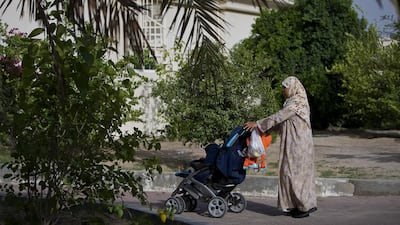New rules regulating the recruitment of domestic workers for the UAE are likely to force unscrupulous companies out of business while enhancing workers’ rights and reducing cases of abuse, according to embassy officials.
Last week an agreement signed between the Philippines Department of Labour and Employment and the UAE's Ministry of Human Resources and Emiratisation, aiming to protect overseas Filipino workers after Manila implemented what was effectively a ban on its citizens travelling to the UAE and some other Gulf states for such work.
This was in part a result of the exploitative behaviour of some recruiters and cases where employers subjected maids to abuse.
In March the UAE government announced that all private recruitment agencies specialised in hiring maids will have to register with Tadbeer – a new network of recruitment centres regulated by the Ministry of Human Resources and Emiratisation. Only companies that meet Tadbeer's strict criteria are accepted.
The Philippines Consul General, Paul Cortes, said he is optimistic the number of abuse cases they see per year will drop following new regulations.
“The agreement will make life a little bit easier for us when we want to protect our nationals,” Mr Cortes said.
“Now there is a labour contract which they can return to (if their rights are violated). Of course that will mean employers and employees will be more careful that they meet the requirements,” he said.
“The agreement opens up a more transparent and a more rules-based approach when it comes to the hiring and employment, of not just domestic workers but migrants in general.”
Mr Cortes said employees will be bound to certain contractual obligations which will give household workers a measure of redress to which they can measure their concerns if they feel the contract had not been adhered to.
_______________
Read more:
Ban on Filipino domestic workers looks set to be lifted as new agreement with UAE is signed
FNC approves bill that limits domestic staff’s work hours
New government-backed service to regulate hiring of domestic workers
_______________
After years of shortages and people resorting to unscrupulous methods of hiring domestic help from the Philippines, the Consul General said the draft contract appears to make it easier to hire.
“Because there is a better system now at both the UAE and Philippines. Also the issues are now under the Ministry of Human Resources and Emiratisation.”
Previously maids had been overseen by the Ministry of Interior, meaning complaints about their treatment had to be made directly to police, which could quickly escalate disputes.
Now any disputes will be reviewed professionally at labour courts, “so more redress, more system and a better network. At the end all of these point out to the UAE efforts to ensure that everybody who lives and works in the UAE has proper avenues for redress,” he said.
As families struggled to find Filipinas to work as housemaids during the ban, a black market emerged offering domestic workers fore hire at extortionate costs.
Five years ago it cost Dh 8,000 to hire a worker, now the figure has climbed to Dh16,000. Maids would commonly enter the country on tourist visas and then be sponsored by their new employer.
“The removal of the ban will remove all of the unethical solutions,” said Jad Barghout, chief operating officer of Maids.cc.
“Because ethical providers like me can recruit legally now,” he said, adding that the removal of the ban would decrease the cost of recruiting from the Philippines.
Moreover, the terms and conditions of the agreement align with the strict rules introduced by Tadbeer this year, which will drive dozens of companies to shut down if they do not meet their strict guidelines that aim to protect rights of low-paid labour.
Mr Barghout’s company has successfully registered as a Tadbeer center and will begin operating as of next week. However, hundreds of other agencies were rejected, he said.
“Which means they will have to shut down, and around 40 only got shortlisted.”
All the accepted candidates are expected to start operating in mid-December.
In addition, Tadbeer expects recruitment centres to follow up on any issues or problems maids may face with their employers.
Mr Barghout said his company already follows this model as they would sponsor the maids themselves. This meant they were always in direct contact with their employees and on the forefront if any issues occurred.
“If they abused them with working hours, deprived them of their day off, we send a warning, if they do not comply we cancel the contract.”
The domestic helpers are trained to report any mishaps to a hotline provided by the company.
If they are sexually harassed, which Mr Barghout said can occur quite commonly, “we train our maids to call the police first and then us, so we can be there.”
He said he hopes that with Tadbeer, all centres will follow this model; “they told us as Tadbeer we are responsible for solving the problems.”
“It is a chain reaction, companies should take care of their maids or else they will resign,” he said.
“So they have to try hard, and the Ministry of Human Resources and Emiratisation is now watching everything, so they need to make sure that the client and workers are happy.”
This approach has worked well with their 1,270 maids so far.
“In the past two years, the complaints filed by our maids over the families they work for were very low, less than seven or eight, because we solve them straight away.”


